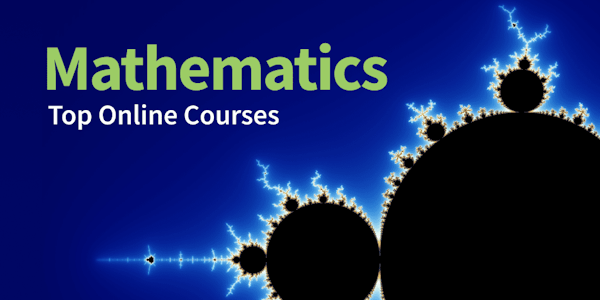Question Reality! Science, philosophy, a search for meaning
Dartmouth College via Coursera Specialization
-
10
-
- Write review
Overview
How much can we know of the physical world? Can we know everything? Or are there fundamental limits to how much we can explain? If there are limits, to what extent can we explain the nature of physical reality? RealityX investigates the limits of knowledge and what we can and cannot know of the world and ourselves.
We will trace the evolution of ideas about the nature of reality in philosophy and the natural sciences through the ages. Starting with the philosophers of Ancient Greece and ending with cutting edge theories about the universe, quantum physics, and the nature of consciousness.
Join world-renowned physicist and author Marcelo Gleiser and leading experts as we explore how philosophers and physicists from Plato to Einstein and many others have attempted to explain the nature of the world and of reality.
Syllabus
Course 1: Question Reality: Cosmos
- Offered by Dartmouth College. This course explores the concept of reality and the physics of the sky. You will travel through the ... Enroll for free.
Course 2: Question Reality: Matter
- Offered by Dartmouth College. In this course, you will walk through a timeline of “the atom” from the Greeks through discoveries in the ... Enroll for free.
Course 3: Question Reality: Mind
- Offered by Dartmouth College. This course explores questions about mathematics, nature, and perfection. You will learn about logic, ... Enroll for free.
- Offered by Dartmouth College. This course explores the concept of reality and the physics of the sky. You will travel through the ... Enroll for free.
Course 2: Question Reality: Matter
- Offered by Dartmouth College. In this course, you will walk through a timeline of “the atom” from the Greeks through discoveries in the ... Enroll for free.
Course 3: Question Reality: Mind
- Offered by Dartmouth College. This course explores questions about mathematics, nature, and perfection. You will learn about logic, ... Enroll for free.
Courses
-
This course explores the concept of reality and the physics of the sky. You will travel through the philosophies and worldviews of early civilizations to the time of early scientists such as Plato, Aristotle, and Copernicus. You will learn how Galileo's findings with the telescope challenged the Aristotelian interpretation of the cosmos, about Galileo’s revolutionary conclusions on gravity, and Newton's universal law of gravitation. This course will also introduce you to the scientific methods and their limitations. You will also explore the properties and behaviors of homemade pendulums. Next, you will explore modern ideas of cosmology, of the Big Bang, and even recent speculations that our universe is not all there is. Mysteries and properties of light and how they were discovered, questioned, and confirmed through experiments over the past few hundred years through the present will also be discussed.
-
This course explores questions about mathematics, nature, and perfection. You will learn about logic, computers, simulations, and different perspectives on the nature of human consciousness. You will also be able to determine what free will means to you and your reality. Next, you will learn the features of artificial intelligence and understand if it is possible to mimic the complexity of a brain through a machine.
-
In this course, you will walk through a timeline of “the atom” from the Greeks through discoveries in the 1900s and learn how our understanding of matter and the atom affected our views on reality. You will be introduced to some of the current understandings of matter and subatomic particles and also take a trip to the Large Hadron Collider at CERN! Finally, you will explore quantum mechanics' interpretation of reality and compare quantum versus classical boundaries. This course also addresses questions such as: Where do you draw the line between the quantum and the classical worlds? What do we mean by “knowable” and “unknowable”?
Taught by
Marcelo Gleiser








